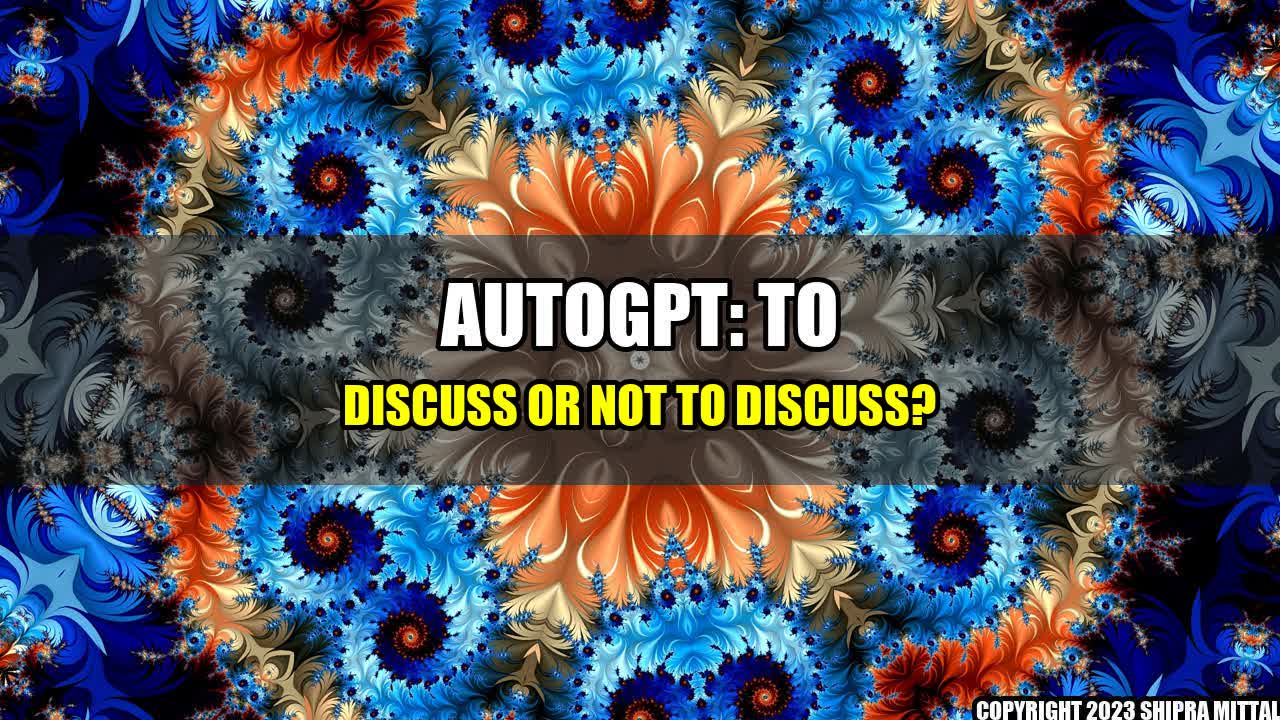The Story
Imagine you invent a new tool that can generate human-like text on any given topic. This tool is powered by a GPT (Generative Pre-trained Transformer) language model, which means it has been trained on massive amounts of data to mimic human writing patterns. The result is a natural-sounding text that is almost indistinguishable from a text written by an actual human. You call it AutoGPT.
At first, you only share AutoGPT with a few colleagues and friends for testing purposes. They are amazed by its capabilities and suggest several use cases, ranging from automating content creation for blogs to generating chatbot responses. You start seeing the potential for AutoGPT to revolutionize the way we produce and consume text-based content.
However, you also realize that AutoGPT could be misused for malicious purposes, such as spreading fake news, propaganda, or hate speech. You worry that if you release it to the public and openly discuss its capabilities, some people might exploit it for their own gain, causing harm to others.
The Examples
Whether AutoGPT should be openly discussed depends on the use cases that are being proposed. Here are some examples:
- Positive use case: AutoGPT can help journalists write news articles faster and more accurately, freeing up their time to investigate deeper into the story.
- Negative use case: AutoGPT can be used to create a fake identity online and manipulate unsuspecting individuals into believing false information.
- Neutral use case: AutoGPT can assist students in generating essays or academic papers, as long as they acknowledge the use of the tool and provide proper citations.
As you can see, the same tool can have vastly different outcomes depending on how it is used. It is up to the users to decide whether their intention is to create, deceive, or support others.
The Conclusion
- AutoGPT can be a powerful tool for content creation, but it also comes with ethical concerns.
- Openly discussing its capabilities and potential use cases can encourage responsible use, but it can also attract bad actors.
- Ultimately, the decision to discuss or not to discuss AutoGPT should consider the balance between innovation and responsibility.

Social
Share on Twitter Share on LinkedIn